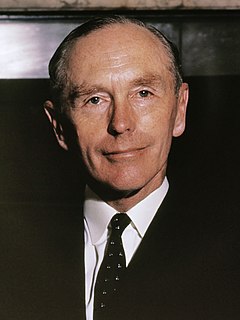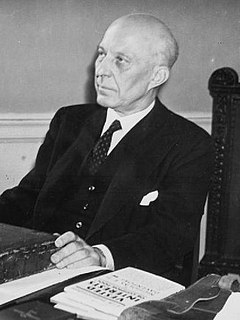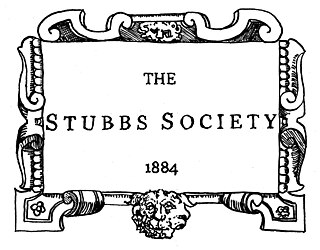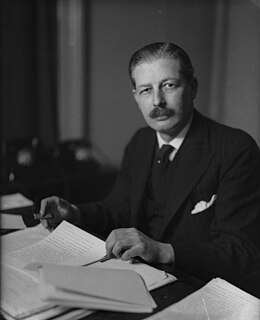
The 1970 United Kingdom general election was held on Thursday 18 June 1970. It resulted in a surprise victory for the Conservative Party under leader Edward Heath, which defeated the governing Labour Party under Harold Wilson. The Liberal Party, under its new leader Jeremy Thorpe, lost half their seats. The Conservatives, including the Ulster Unionist Party (UUP), secured a majority of 31 seats. This general election was the first in which people could vote from the age of 18, after passage of the Representation of the People Act the previous year.

Alexander Frederick Douglas-Home, Baron Home of the Hirsel, was a British Conservative politician who served as Prime Minister of the United Kingdom from October 1963 to October 1964. He was the last Prime Minister to hold office while a member of the House of Lords, before renouncing his peerage and taking up a seat in the House of Commons for the remainder of his premiership. His reputation, however, rests more on his two spells as Britain's foreign minister than on his brief premiership.

The 1945 United Kingdom general election was held on 5 July 1945, with polls in some constituencies delayed until 12 July and in Nelson and Colne until 19 July, because of local wakes weeks. The results were counted and declared on 26 July, to allow time to transport the votes of those serving overseas.

The 1964 United Kingdom general election was held on 15 October 1964, five years after the previous election, and thirteen years after the Conservative Party, first led by Winston Churchill, had entered power. It resulted in the Conservatives, now led by its fourth leader, Sir Alec Douglas-Home, narrowly losing the election to the Labour Party, led by Harold Wilson, with Labour having an overall majority of four seats. It resulted in Labour ending its thirteen years in opposition and led to Wilson to become, at the time, the youngest Prime Minister in more than 150 years.

The 1959 United Kingdom general election was held on Thursday, 8 October 1959. It marked a third consecutive victory for the ruling Conservative Party, now led by Harold Macmillan. For the second time in a row, the Conservatives increased their overall majority in Parliament, to 101 seats over the Labour Party led by Hugh Gaitskell. The Liberal Party led by Jo Grimond again returned only six MPs to the House of Commons, but managed to increase their overall share of the vote to 5.9%; compared to just 2.7% four years earlier. To date, the 1959 general election marks the only occasion since the Second World War when a government has managed to increase its overall majority while seeking a third term in government. However, despite this electoral success; the Conservatives failed to win the most seats in Scotland, and have not done so since. This election marks the beginning of Labour's domination of Scottish seats at Westminster, which lasted until the rise of the Scottish National Party at the 2015 general election. Both future Liberal leader Jeremy Thorpe and future Conservative Party leader and eventual Prime Minister Margaret Thatcher first entered the House of Commons at this election.

The 1918 United Kingdom general election was called immediately after the Armistice with Germany which ended the First World War, and was held on Saturday, 14 December 1918. The governing coalition, under Prime Minister David Lloyd George, sent letters of endorsement to candidates who supported the coalition government. These were nicknamed "Coalition Coupons", and led to the election being known as the "coupon election". The result was a massive landslide in favour of the coalition, comprising primarily the Conservatives and Coalition Liberals, with massive losses for Liberals who were not endorsed. Nearly all the Liberal M.P.s without coupons were defeated, although party leader H.H. Asquith managed to return to Parliament in a by-election.

The 1906 United Kingdom general election was held from 12 January to 8 February 1906.

Edward Hugh John Neale Dalton, Baron Dalton, was a British Labour Party economist and politician who served as Chancellor of the Exchequer from 1945 to 1947. He shaped Labour Party foreign policy in the 1930s, opposing pacifism and promoting rearmament against the German threat, and strongly opposed the appeasement policy of Prime Minister Neville Chamberlain in 1938. Dalton served in Winston Churchill's wartime coalition cabinet; after the Dunkirk evacuation he was Minister of Economic Warfare, and established the Special Operations Executive. As Chancellor, he pushed his policy of cheap money too hard, and mishandled the sterling crisis of 1947. His political position was already in jeopardy in 1947, when, he, seemingly inadvertently, revealed a sentence of the budget to a reporter minutes before delivering his budget speech. Prime Minister Clement Attlee accepted his resignation; Dalton later returned to the cabinet in relatively minor positions.

In British politics, the "Night of the Long Knives" was a major Cabinet reshuffle that took place on 13 July 1962. Prime Minister Harold Macmillan dismissed seven members of his Cabinet, one-third of the total. The speed and scale of the reshuffle caused it to be associated by its critics with the 1934 Night of the Long Knives in Nazi Germany.
Cambridge University was a university constituency electing two members to the British House of Commons, from 1603 to 1950.
Oxford University was a university constituency electing two members to the British House of Commons, from 1603 to 1950. The last two members to represent Oxford University when it was abolished were A. P. Herbert and Arthur Salter.

The 1980 Labour Party leadership election was held following the resignation of James Callaghan. Callaghan had been Prime Minister from 1976 to 1979 and had stayed on as leader of the Labour Party for eighteen months in order to oversee an orderly transition to his favoured successor, Denis Healey over his own deputy Michael Foot. However, during this period the party had become bogged down in internal arguments about its procedures and future direction.

The 1963 Labour Party leadership election was held following the death of Hugh Gaitskell, party leader since 1955. He died on 18 January 1963 and was succeeded by deputy leader George Brown.
The 1987 University of Oxford election for the position of Chancellor was called upon the death of the incumbent Chancellor, Harold Macmillan, 1st Earl of Stockton on 29 December 1986.

The Stubbs Society is the University of Oxford's oldest and most illustrious forum for scholarship in international history, grand strategy and foreign affairs.
Gaitskellism was the ideology of a faction of the British Labour Party. It opposed many of the economic policies of the trade unions, especially regarding nationalisation and controlling the economy for the benefit of unions.

The 2003 University of Oxford election for the position of Chancellor was called upon the death of the incumbent Chancellor, Roy Jenkins, Baron Jenkins of Hillhead on 5 January 2003.

The New Zealand Labour Party leadership election, 1974 was held on 6 September 1974 to determine the eighth leader of the New Zealand Labour Party. The election was won by Tasman MP Bill Rowling.























